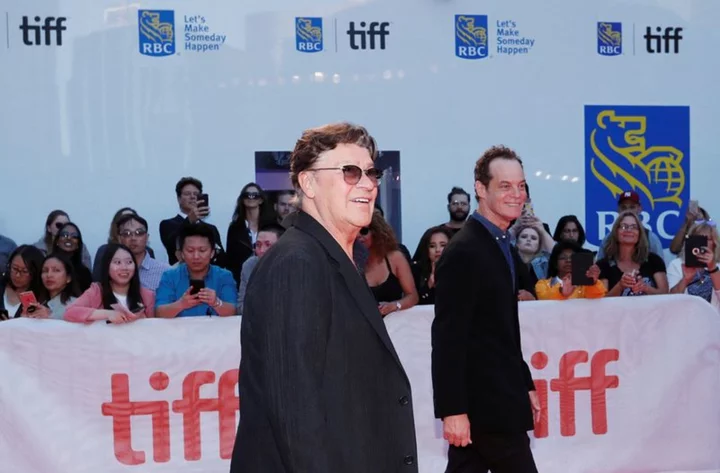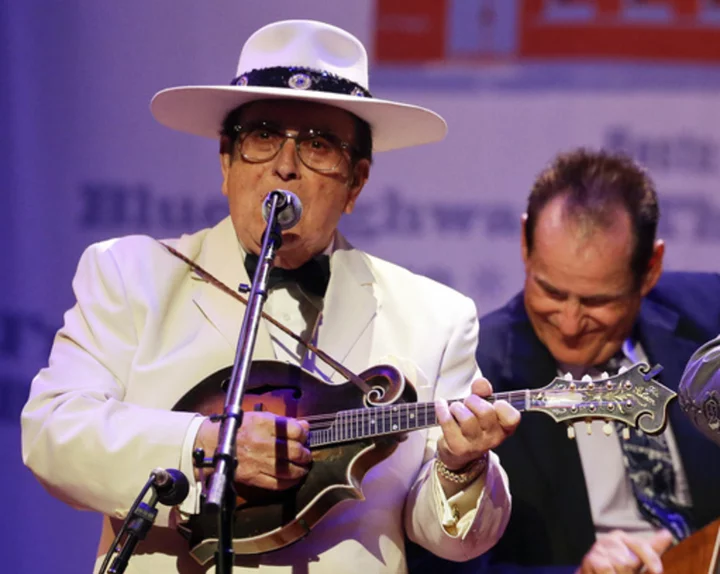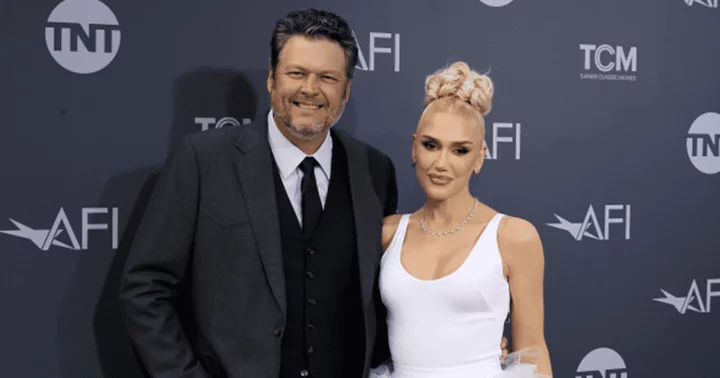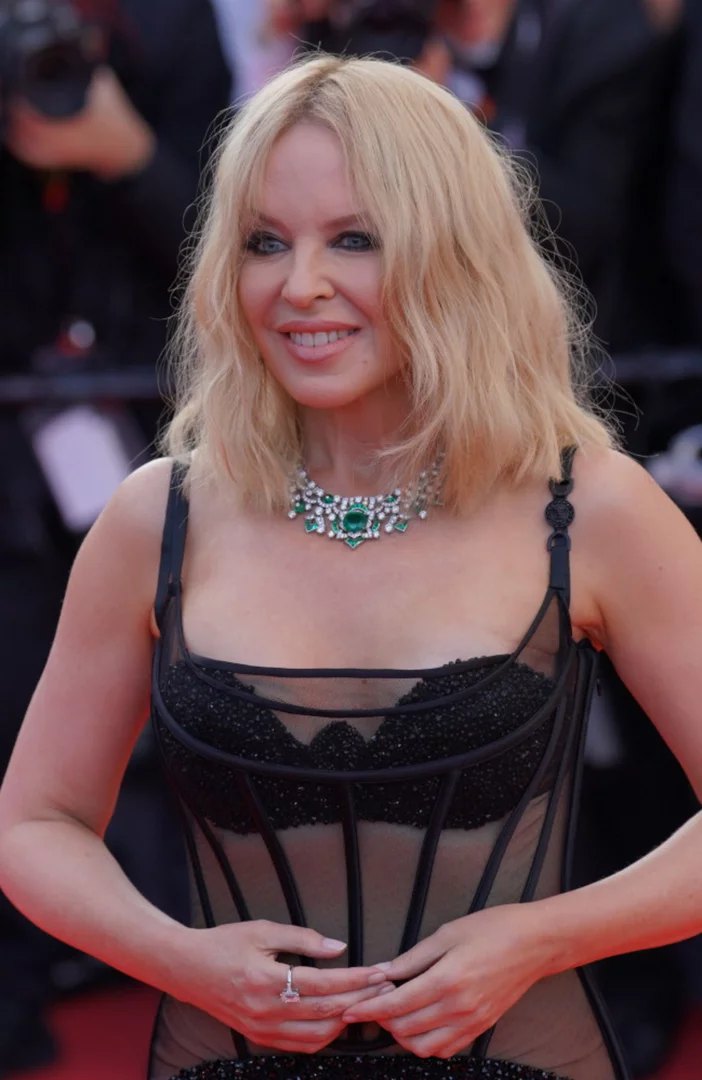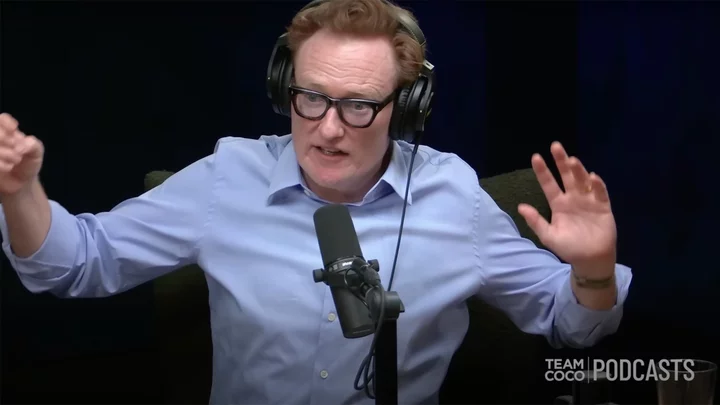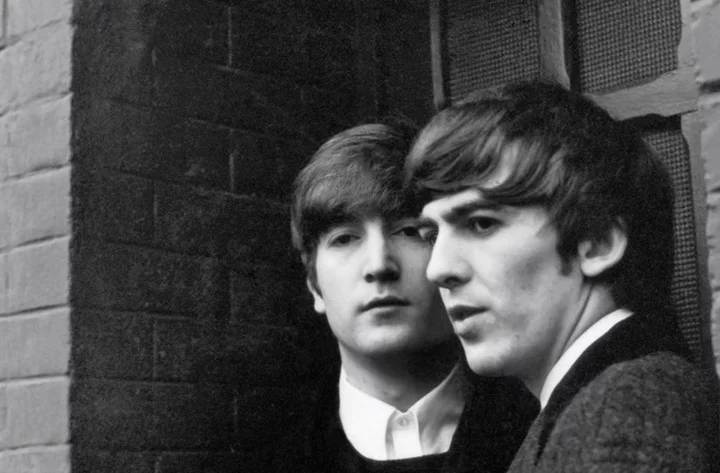By Matthew Lewis
(Reuters) -Robbie Robertson, the guitarist and main songwriter in The Band, the Canadian-American group known for songs including "The Weight" and "The Night They Drove Old Dixie Down," has died at the age of 80, his manager said on Wednesday.
Robertson, who left his Toronto home at age 16 to pursue his rock'n'roll dreams, died Wednesday in Los Angeles after a long illness, Robertson's manager of 34 years, Jared Levine, said in a statement.
"Robbie was surrounded by his family at the time of his death," the statement added.
The Band included four Canadians - Robertson, Rick Danko, Garth Hudson and Richard Manuel - and was anchored by an Arkansas drummer, Levon Helm. Originally dubbed The Hawks as the backing band for rockabilly wild man Ronnie Hawkins, they gained attention supporting Bob Dylan on his "Going Electric" tours of 1965-1966.
After changing their name to The Band and rebasing in Woodstock, New York, they became one of the most respected groups in rock. Their 1976 farewell concert in San Francisco was the basis of Martin Scorsese's 1978 movie "The Last Waltz."
The Band had a unique chemistry. Known for their vocal harmonies, they had three excellent singers in Helm, bassist Danko and pianist Manuel. Organist and multi-instrumentalist Garth Hudson was also crucial.
"They were the goods," Robertson wrote of his four band mates in his 2016 autobiography, "Testimony." "This band was a real band. No slack in the high wire here. Everybody held up his end with plenty to spare."
"The impact of The Band's first album can't be exaggerated," critic Greil Marcus wrote in 2000, referring to their 1968 debut album, "Music from Big Pink." It contained "The Weight" and Dylan's "I Shall Be Released," among others.
Their 1969 sophomore album, titled simply "The Band," was even better. With their frontiersman look and unique blend of folk, rock, country, soul and gospel, The Band influenced the likes of Eric Clapton, Elton John, the Grateful Dead, the Beatles, and generations of later musicians who played music that was by then called "Americana."
Their music harked back to an earlier America, reflected in such song titles as "Across the Great Divide," "King Harvest (Has Surely Come)," "Up on Cripple Creek" and "The W.S. Walcott Medicine Show."
INDIGENOUS ROOTS
Jaime Royal Robertson was born in Toronto on July 5, 1943. His mother, Rosemarie Dolly Chrysler, was an Indigenous Canadian of Mohawk and Cayuga descent. She married a Canadian Army enlistee named Jim Robertson. Robbie Robertson later learned that his biological father was a man he described as a "card shark" of Jewish heritage named Alex Klegerman, who was killed in a highway hit-and-run accident before Robertson was born.
As a boy, Robertson was impressed by his visits with relatives on the Six Nations Indian Reserve in southwestern Ontario. It struck him that "everybody there could play or sing or dance or do something with music," he told the Canadian Broadcasting Corporation's "Metro Morning" in 2017. "To see somebody sitting beside you in a chair and hear their fingers moving on the instrument, and hear them breathing when they were singing, all of that, it gave me chills."
Robertson became infatuated with the guitar early on and gained a reputation as a guitar hot shot during his time with the Hawks. "Rolling Stone" magazine eventually ranked him No. 59 on its 2015 list of "100 Greatest Guitarists." His unique guitar style was displayed to great effect on such Band songs as "Jawbone" and "Smoke Signal."
After soaring to the highest heights on their first two albums, The Band continued to produce good work in the 1970s but a certain lethargy and lack of direction set in, not helped by the substance abuse problems of Danko, Helm and Manuel. They decided to pack it in by holding a star-studded concert in 1976 with such guests as Dylan, Clapton, Joni Mitchell, Neil Young, Van Morrison and Muddy Waters.
After The Band's breakup, Robertson created soundtracks for Scorsese films, including "Raging Bull." He made a foray into acting in 1980 with the film "Carny," starring Jodie Foster. He released several solo albums, exploring new sonic territory rather than trying to recapture the distinctive sound of The Band.
DARK TIMES
In the 1990s, acrimony emerged when Helm accused Robertson of failing to give co-credits to the other members on songs he claimed they had co-written. Robertson denied he had unfairly withheld credit.
Helm painted a scathing picture of Robertson in his 1993 autobiography. Robertson reacted more in sorrow than anger, often saying in interviews that Helm, in the early days, was "the closest thing I had to a brother."
The Band's members reunited in various configurations in the 1980s and 1990s and even made a few albums under The Band name, but Robertson never took part.
After The Band's breakup, a lifetime of hard living took its toll on the members. Manuel hanged himself in a Florida hotel room at age 42 in 1986. Danko died at age 55 in 1999. Helm died of throat cancer in 2012. Hudson is the remaining member still alive.
In February 2022, "Variety" reported, citing sources, that Robertson sold his music publishing catalog to a firm called Iconoclast for about $25 million.
After all the highs and lows, Robertson looked back at his Band mates with love and affection. "Through all the turbulence, I am left with such a deep appreciation for my journey," he wrote in his autobiography. "This shining path I've traveled being part of the Band - there will never be another like it. Such a gift, such talent, such pain, such madness ... I wouldn't trade it for anything."
(Reporting by Matthew Lewis in Chicago; additional reporting by Kanishka Singh in Washington; editing by Diane Craft and Rosalba O'Brien)

